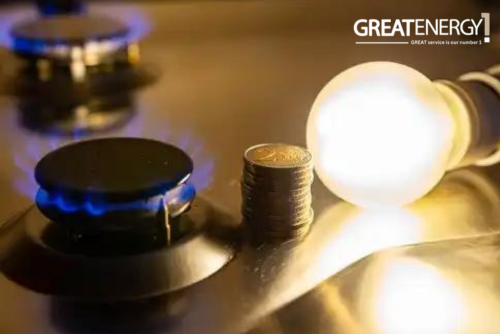In deregulated energy markets, residents might engage the services of Electricity and Gas brokerages to help them search for the cheapest electricity and natural gas prices within their residential areas. These are electricity and gas brokers who help users find appropriate electricity and gas plans that match their consumption needs; they act like real estate agents. They do not generate, sell, or transport power, rather they work between retail electricity providers (RIPs) as well as end-users. But first thing is first; let us take you through What is an Electricity & Gas Broker and how They Work.
Related Blogs:
Tips To Reduce Your Electricity Bill
How One Can Become A Natural Gas Broker?
1. What Is An Energy Broker?
An Energy Broker acts as a knowledgeable intermediary in the complex world of energy markets. Energy brokers work as consultants helping businesses, other entities, and individuals in navigating through challenges that come with the procurement of energy services. Their main role is ensuring their clients secure the best deals for electricity, natural gas, or renewable sources of power among others. They carry out extensive market research, study consumption patterns, and negotiate contracts for supply with suppliers on behalf of their clients. Electricity and gas brokers use their expertise and understanding about how markets operate therefore enabling informed choices about how best to procure electricity and gas at advantageous rates.
2. What Do Energy Brokers Do?
Some brokers work with only one client but some have up to 100 clients under them so they may be required to monitor daily each one’s progress. Brokers must also have information regarding the current happenings in the energy markets and be able to predict changes that are likely to occur.
3. Electricity And Gas Brokers
Electricity and gas brokers exist in deregulated markets for utilities. They operate just like shopping assistants for your energy needs. They look at plans, and rates from different suppliers saving you the agony of going through all these by yourself. However, their services are only available in areas where you have a choice in your energy supplier. To this end, it is important to look for independence when selecting a broker to be sure that they will prioritize what is the best deal for them, not any one particular supplier’s commission.
4. What Is The Workplace Of An Energy Broker Like?
The workplace of an energy broker is dynamic, it involves office-based tasks along with client interaction, market research activities, and bargaining efforts.
4.1 Office-Based Activities
Most of an Energy broker’s work is desk-based. Brokers conduct comprehensive market studies while analyzing trends in power usage and regulations. Market variations are also tracked using special programs plus databases that spot possible opportunities for customers depending on conditions prevailing on the ground. Brokers also spend time talking to clients on phone calls or video conferencing. In addition, they create adaptation strategies related to electricity purchases within such offices since they are informed by detailed reports and findings they have researched. This time allows them to negotiate terms with suppliers as well reviewing contracts which should go hand in hand with customer demand.
4.2 Site Visits and Client Interactions
Energy brokers roles are big in client interactions. The brokers meet clients to comprehend their energy needs, financial constraints, as well as sustainability goals. Some of these meetings happen face-to-face while others through virtual channels. This necessitates their presence in some clients’ premises to evaluate the energy needs, appraise the existing systems, and understand the operating environment of a client better for large commercial or industrial clients that may require on-site visits by brokers. It is from these site visits that an expert can make personalized recommendations and grasp nuances of specific consumption patterns in each client.
4.3 Negotiations and Supplier Relationships
Their main job involves bargaining; therefore, to get the best prices and conditions for their clients, an energy broker must negotiate with suppliers. This calls for excellent communication skills, knowledge of market movements, and the ability to assertively represent one’s client interests. They also establish relationships with suppliers making sure they have information about the current products, rates policy packages available at any moment. These affiliations are indispensable for obtaining good offers which are beneficial to the customers.
4.4 Traveling and Flexibility
There is flexibility when working as an energy broker because it allows them to work through different time zones or at any time required by a customer; thus travel comes with it especially if they deal with more considerable commercial-industrial customers like corporations. For example, this could entail travelling to see a client’s office or operations, attending conventions within various sectors, or meeting with power sellers across other regions. A relationship builder should be ready to go anywhere finds necessary – establishing close connections with colleagues who will help to get information even about markets.
5. Benefits Of Electricity and Gas Brokers
Here are only a handful of benefits associated with using companies such as Great Energy 1:
- Saves you time.
- Saves you money.
- You receive the most cost-effective plan possible.
- Automatic Renewal.
- Receive useful knowledge, tips, and information on saving electricity and home energy.
